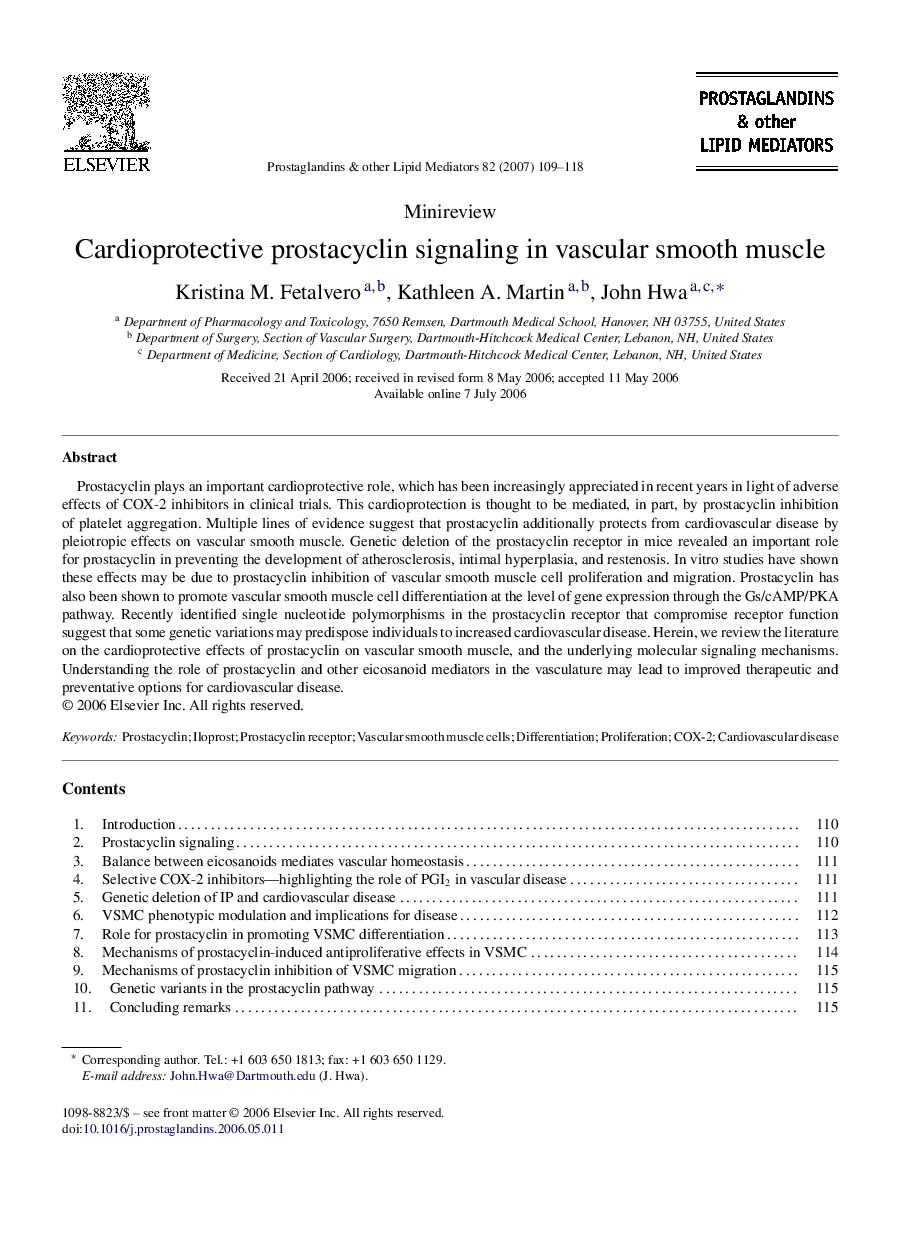| Article ID | Journal | Published Year | Pages | File Type |
|---|---|---|---|---|
| 2020094 | Prostaglandins & Other Lipid Mediators | 2007 | 10 Pages |
Prostacyclin plays an important cardioprotective role, which has been increasingly appreciated in recent years in light of adverse effects of COX-2 inhibitors in clinical trials. This cardioprotection is thought to be mediated, in part, by prostacyclin inhibition of platelet aggregation. Multiple lines of evidence suggest that prostacyclin additionally protects from cardiovascular disease by pleiotropic effects on vascular smooth muscle. Genetic deletion of the prostacyclin receptor in mice revealed an important role for prostacyclin in preventing the development of atherosclerosis, intimal hyperplasia, and restenosis. In vitro studies have shown these effects may be due to prostacyclin inhibition of vascular smooth muscle cell proliferation and migration. Prostacyclin has also been shown to promote vascular smooth muscle cell differentiation at the level of gene expression through the Gs/cAMP/PKA pathway. Recently identified single nucleotide polymorphisms in the prostacyclin receptor that compromise receptor function suggest that some genetic variations may predispose individuals to increased cardiovascular disease. Herein, we review the literature on the cardioprotective effects of prostacyclin on vascular smooth muscle, and the underlying molecular signaling mechanisms. Understanding the role of prostacyclin and other eicosanoid mediators in the vasculature may lead to improved therapeutic and preventative options for cardiovascular disease.
